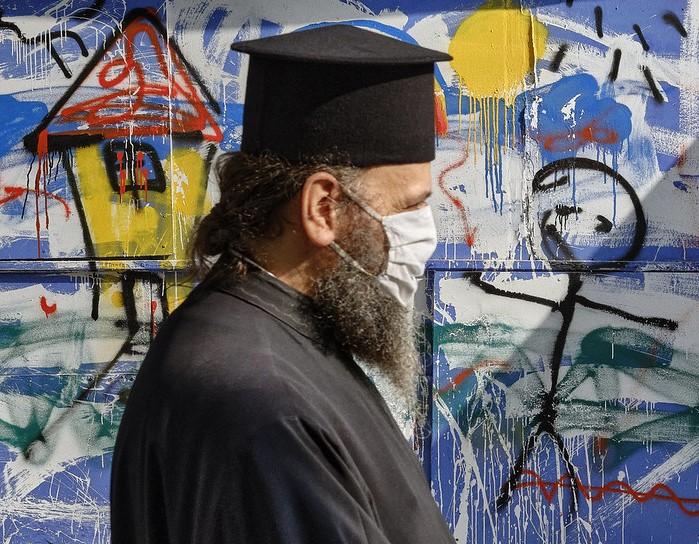The head of the World Health Organization's (WHO's) European regional office today warned that while Europe has seen an overall decline in new COVID-19 cases over the past 3 weeks, the situation is not improving everywhere on the continent.
WHO Regional Director for Europe Hans Henri Kluge, MD, MPH, said in an update that although there has been a slight decline in cases in western Europe, almost half the countries in the region are seeing an increase in infections, as the resurgence that began earlier this fall is now moving eastward and causing spikes in central and southern Europe.
"These reports are of grave concern; a stark reminder of the fact that the vast majority of us remain susceptible to the virus," Kluge said.
Kluge noted that the region still accounts for 40% of new global cases and 50% of deaths. Over 35,000 new COVID-19 deaths were reported in Europe last week. He urged countries that are seeing a reduction in cases to scale up their public health infrastructure and prepare for the next surge.
With vaccines on the horizon, Kluge encouraged European countries to decide who should be vaccinated first to maximize the impact of the initial limited doses, and urged citizens who are concerned about vaccination to seek reliable information from trustworthy sources, adding that all data from vaccine clinical trials will be thoroughly assessed for quality, safety, and efficacy.
"The promise of a vaccine is great but its full potential will not be realized without strong preparedness and community acceptance," Kluge said. "But let us also be clear, the vaccine is not here today, not everyone will receive it when it arrives, therefore it's imperative that we continue to practice basic protective behaviours (such as mask wearing)."
The European Medicines Agency is scheduled to meet on Dec 29 to review safety and efficacy data on the Pfizer-BioNTech vaccine, and on Jan 12, 2021, to review data on the Moderna vaccine. Approval of those vaccines could come shortly after those meetings.
As of Nov 30, nine European countries have established interim recommendations for the groups that should be prioritized to get the first vaccine doses, according to a new report from the European Centre for Disease Prevention and Control. Those recommendations primarily put the elderly, healthcare workers, and people with certain comorbidities at the front of the line.
Ski resort closures
One of the measures countries in western Europe have taken to reduce the spread of the virus in the coming weeks, and maintain the decline in new infections, is to shut down ski resorts over the holidays, a move that France, Germany, and Italy have all made. But Swiss health minister Alain Berset said today that he would not bow to pressure to close his country's ski areas, according to Reuters.
"Switzerland does not react to pressure from other countries," Berset told reporters.
The BBC reports that France will impose random border checks to prevent French citizens from skiing in Switzerland. Several European Union (EU) leaders have tried to coordinate their plans ahead of Christmas, but Switzerland is not part of the EU. Austria and Spain have also expressed reluctance to close ski slopes.
Italy, meanwhile, announced today that it will ban movements between regions during the Christmas holidays, according to CNN. The ban will stretch from Dec 21 to Jan 6. The government is also considering a national curfew over the Christmas holidays.
Elsewhere in Europe, Greece has extended the nationwide lockdown that began last month to Dec 14, Reuters reports. A government spokesperson said that cases have declined in the country, but at a slower pace than expected. Hospitals in northern Greece, the hardest hit region of the country, are operating at full capacity.
And in Russia, coronavirus infections today hit a record of 28,145 new confirmed cases, according to the National Herald. Russia has the fourth-highest total of confirmed infections in the world, with 2.4 million. Government officials have resisted a second nationwide lockdown and widespread closure of businesses.
Surges in Iran, Indonesia
In other global COVID-19 developments:
- Iran reported 13,922 new COVID-19 cases todayin its third wave of coronavirus infections, bringing the country's total to over 1 million, Reuters reports. Iran is the Middle East's hardest-hit country, with a death toll of 49,348.
- Indonesia shattered its daily recordof infections today, reporting 8,369 new cases, according to the Jakarta Post.
- The current global total of confirmed COVID-19 infections is 64,918,435, with 1,501,076 deaths, according to the Johns Hopkins COVID-19 dashboard.




















